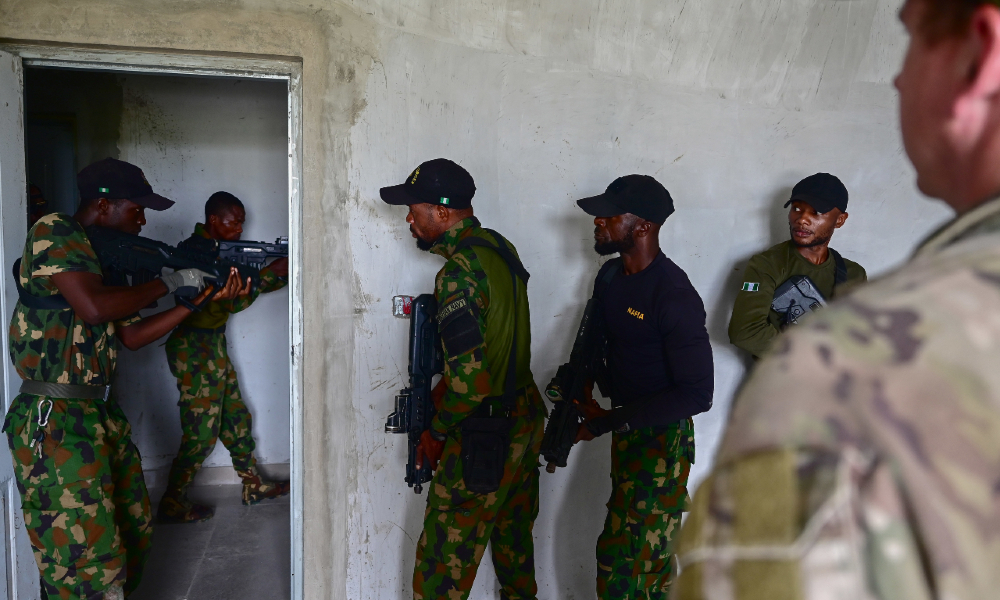Today's Headlines and Commentary
Greg Miller at the Washington Post reports that the CIA is pushing for more drones.
Malala Yousufzai, the 14-year old girl shot by the Taliban on her school bus, is now able to stand with help, her doctors say.
Published by The Lawfare Institute
in Cooperation With

Greg Miller at the Washington Post reports that the CIA is pushing for more drones.
Malala Yousufzai, the 14-year old girl shot by the Taliban on her school bus, is now able to stand with help, her doctors say. The Associated Press has the story.
Scott Shane of the New York Times has more details about the Danish undercover agent who allegedly helped arrange Anwar al-Awlaki's marriage to his third wife. He claims the CIA paid him $250,000 for his role in the undercover plot.
The New York Times has this profile of Ahmed Abu Khattala, which just seems destined to show up in next week's foreign policy debate between President Obama and Mitt Romney:
Witnesses and the authorities have called Ahmed Abu Khattala one of the ringleaders of the Sept. 11 attack on the American diplomatic mission here. But just days after President Obama reasserted his vow to bring those responsible to justice, Mr. Abu Khattala spent two leisurely hours on Thursday evening at a crowded luxury hotel, sipping a strawberry frappe on a patio and scoffing at the threats coming from the American and Libyan governments. Libya’s fledgling national army is a “national chicken,” Mr. Abu Khattala said, using an Arabic rhyme. Asked who should take responsibility for apprehending the mission’s attackers, he smirked at the idea that the weak Libyan government could possibly do it. And he accused the leaders of the United States of “playing with the emotions of the American people” and “using the consulate attack just to gather votes for their elections.” Mr. Abu Khattala’s defiance — no authority has even questioned him about the attack, he said, and he has no plans to go into hiding — offered insight into the shadowy landscape of the self-formed militias that have come to constitute the only source of social order in Libya since the fall of Col. Muammar el-Qaddafi.Spencer Ackerman of Wired’s Danger Room has more on Abu Khattala, noting that “Comments like [his Times interview] help explain why the CIA wants to expand the drone war.” Speaking of articles President Obama didn’t need just before a foreign policy debate, check out Rosa Brooks’s piece in Foreign Policy, entitled “The Case for Intervention. . . In Obama’s dysfunctional foreign-policy team.” Brooks served on that team, both at the State Department and at the Pentagon. She writes:
He was a visionary candidate, but as president, [Obama] has presided over an exceptionally dysfunctional and un-visionary national security architecture -- one that appears to drift from crisis to crisis, with little ability to look beyond the next few weeks. His national security staff is squabbling and demoralized, and though senior White House officials are good at making policy announcements, mechanisms to actually implement policies are sadly inadequate. It doesn't have to be this way. If Obama wants to fix his broken foreign policy machine, he can do it -- but conversations with numerous insiders, as well as my own government experiences, suggest that he needs to focus on strategy, structure, process, management, and personnel as much as on new policy initiatives. Not sexy, I know. But just as a start-up company needs more than an entrepreneurial founder with a couple of good ideas and a nifty PowerPoint presentation, the United States needs more than speeches and high-minded aspirations.According to the Associated Press, Mahamud Said Omar, a Minneapolis mosque janitor, has been convicted of all five terrorism charges for helping to recruit more than twenty American fighters for Al Shabab. A Howard Willie Carter II was arrested in connection with a plot to blow up the Federal Reserve Bank of New York. Since his role was minor, he won’t face terrorism charges but will instead face charges for the “1,000 images and three video files containing child pornography” on his computer. Lovely guy. Mosi Secret at the New York Times has the story. Michael Daly of the Daily Beast has this piece about the FBI’s role in busting the plot. Mark Thompson of Time excerpts some fascinating moments from an interview with Air Force Major Matthew Brown, whose mission was “to turn Taliban fighters into law-abiding Afghan citizens.” Author Dilip Hiro writes in Tom Dispatch (republished in Salon.com) about Washington’s relationship with Islamabad, drawing attention to the former’s nuclear weapons arsenal. Nasser Arrabyee tells us that 14 solders and 12 Al Qaeda militants were killed early today in a battle in Yemen. David Cole expresses his disdain in Foreign Policy about the fact that Assistant U.S. Attorney John Durham was given an award for distinguished service by the DOJ when Durham and his team didn’t hold anyone accountable for the CIA’s black sites. And, read Wells’s coverage of the latest in the 9/11 trial---or the Associated Press or Carol Rosenberg at the Miami Herald. And, behold this fascinating interview with Kim Jong Il’s grandson, the stylish Kim Han Sol, who has two earrings and a lot to say about Libya: today’s Moment of Unexpectedly-Interesting Zen. For more interesting law and security-related articles, follow us on Twitter, visit the Georgetown Center on National Security and the Law’s Security Law Brief, Fordham Law’s Center on National Security’s Morning Brief, and Fordham Law’s Cyber Brief. Email us noteworthy articles we may have missed at wakeman.lawfare@gmail.com and singh.lawfare@gmail.com, check out the Lawfare Events Calendar for upcoming national security events, and post relevant job openings at the Lawfare Job Board.
Ritika Singh was a project coordinator at the Brookings Institution where she focused on national security law and policy. She graduated with majors in International Affairs and Government from Skidmore College in 2011, and wrote her thesis on Russia’s energy agenda in Europe and its strategic implications for America.




